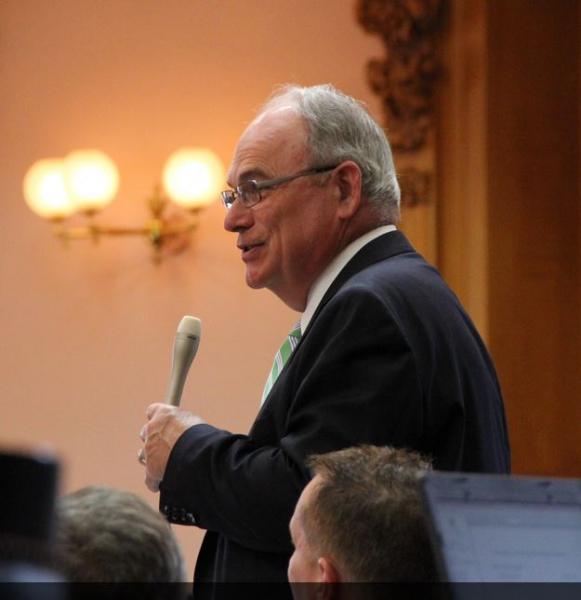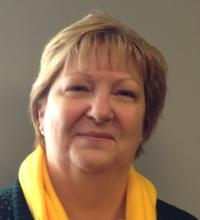The two ranking members on the Ohio House Education Committee each got an anonymous e-mail showing 402 students were truant for months at Ohio Virtual Academy, which has more than 13,000 students. But only 14 of those students have been withdrawn.
‘Children’s lives and futures’
Democratic Rep. Teresa Fedor (D-Toledo) says that suggests that the statewide online charter school is getting millions from the state for 388 students who should have been dis-enrolled months ago.
“If there’s a problem in the system and they’ve known it for months – what other system would allow this to go on?” said Fedor. “This is the Department of Education. These are our children’s lives and futures we’re talking about, and monies we don’t have to waste. We just can’t waste that money. So if that problem’s been known, I want somebody’s head.”
Policy people, not investigators
While Republican Rep. Bill Hayes (R-Granville) agrees with Fedor that the state auditor should investigate, he’s concerned about the source of the e-mail. And he’s not joining Fedor in demanding the state school superintendent answer questions before the committee.
“Why would I? We’re not the investigatory part of the state government when it comes to situations like this,” said Hayes. “We don’t investigate. We’re policy people.”
Other attendance questions
This isn’t the first time questions have been raised about online charter schools and enrollment and attendance. Auditor David Yost brought up his concerns in January, when he unveiled results of an unannounced head count of 30 charter schools that showed what he called “substantial gaps” between the numbers of enrolled students reported to the state and the actual number of students in class.
“Now that doesn’t necessarily come to the conclusion that we have ‘ghost students’ here,” said Yost. “But what it does mean is that there are significant deviations in the data and that we need to ask a large number of questions in terms of policy on how we’re accomplishing funding, and what kind of standards we have.”
Yost noted in January that one of the ways online charter schools report their attendance to the state, the Educational Management Information System, hadn’t been working properly – perhaps for months.
‘Nobody’s getting free money’
John Charlton at the Ohio Department of Education says the system went a long time without being upgraded but is working now and has been improved. He confirms that charter schools get paid based on enrollment, not on attendance, student performance or graduation rates.
And he says charters must provide monthly enrollment numbers to ensure the payments they get are accurate. “Nobody’s getting free money,” said Charlton. “The system is designed that, at the end of the year, you get the exact amount of money you should have gotten.”
Stirring the pot
 That’s the case at Ohio Virtual Academy, according to Kristin Stewart, its head of schools. Stewart says there are policies in place to dismiss kids who don’t log the required number of hours. That’s the case at Ohio Virtual Academy, according to Kristin Stewart, its head of schools. Stewart says there are policies in place to dismiss kids who don’t log the required number of hours.
“And we even back-date anyone to the last time they logged in, so even if they were here for a short time, we would not be funded for that.”
Asked why these allegations have been raised, Stewart replies: “I think that there are people who like to stir the pot. And they know charter schools are not always popular with many people, and so right now during this political climate and this political time, I think people just want to see if they can point fingers and get allegations out there that hurt reputations.”
And Stewart insists the allegations against Ohio Virtual Academy are false, and says she’s working with auditors now, and that anyone who wants to audit the school’s books is welcome to do so.
Truancy
There have always been concerns about how the state can count the students they’ll pay for in online charter schools when there’s no way to do a physical head count in a classroom. This week an anonymous e-mail went to two state lawmakers that claimed 402 students were truant for months at Ohio Virtual Academy – with only 14 of them disenrolled from the school. That could mean the state is paying for 388 kids who aren’t in school. Those lawmakers are investigating the claims and the source of the e-mail. Kristin Stewart is the head of schools at Ohio Virtual Academy. She said those 402 students were just identified as being at risk of being truant, and says the allegations aren’t true. “Absolutely, 100 percent not,” Stewart said.
But a recording of a conference call being circulated to Ohio reporters brings up that question again. The call from April 6 is a team meeting for an advisor group from Ohio Virtual Academy, and one person on the tape is heard telling the others that no more truancy withdrawals will be approved. Two advisors are heard asking what they should do with truant students who haven’t been logging in and have failing grades, and whether a truant student should be re-enrolled for next year. Kristin Stewart says she’s aware the conference call was recorded and shared with reporters, and says students who go 105 consecutive hours without logging in are considered truant under state law and eligible to be kicked out. “We have withdrawn approximately 90, a little over 90 since April 6,” said Stewart. “So obviously that ‘April 6 – absolutely none’ was passed.”
Don't drop out
But Stewart says the school doesn’t like to do withdrawals this late in the year because she’s found kids don’t go to other schools and simply drop out. So she says the school keeps students who might be truant but have extenuating circumstances enrolled, while officials try to reach out to them. Ohio Virtual Academy gets almost $85 million from the Ohio Department of Education – that money comes from the public school districts that their students would attend based on their home address. The Ohio Department of Education confirms that charter schools get paid on enrollment, not on attendance, student performance or graduation rates. Each charter school comes up with its own policy on how and when hours must be completed, says John Charlton at the Ohio Department of Education -- with an emphasis on flexibility. “The reason community schools are there, so they can be more creative and more innovative and do things differently than traditional public schools,” Charlton said. “If we make them follow all the same rules that traditional public schools follow, then what are they? Traditional public schools. And we don’t want them to be traditional public schools. We want them to be creative and innovative and help kids.”
Trust issues
Charter school advocates aren’t convinced. Steven Dyer with the liberal-leaning group Innovation Ohio has worked with the state’s largest teachers union on the website knowyourcharter.com. Dyer says cases like this raise big trust issues with the charter school system. “It would be one thing if we were having a few attendance issues and they were blowing the doors off of student achievement,” said Dyer. “The fact is, they’re among the worst performing schools in the state. They’re getting paid a lot of money, and they’re dragging down the entire charter sector.”
Charlton won’t comment specifically on Ohio Virtual Academy, but says the state expects charters to keep accurate records that the state will confirm, and he says when there’s a problem, he says the organization that sponsors the charter is alerted to give the sponsor and the school an opportunity to fix the problem. And Charlton says the Department of Education is has launched a sponsor evaluation system that will offer incentives for sponsors with schools that do well, and punishments for those with schools that don’t. |